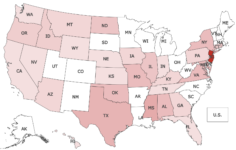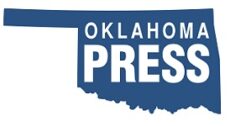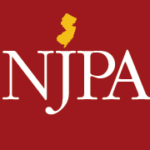 Legislation that would move all or most public notice in three states to government websites passed significant milestones last month. Bills in Indiana and Kentucky were approved by the Houses of Representatives in those states by comfortable margins, while another in Idaho’s lower chamber barely squeaked by.
Legislation that would move all or most public notice in three states to government websites passed significant milestones last month. Bills in Indiana and Kentucky were approved by the Houses of Representatives in those states by comfortable margins, while another in Idaho’s lower chamber barely squeaked by.
The most significant threat to newspaper notice appears to be the assault launched in Indiana, where HB-1312 would eventually allow all public and private notices in the state to be posted on a website established by the Indiana Office of Technology (IOT). It passed the House on Feb. 18 by a 57-36 vote.
Two state press groups prepare for future
 Print is still the most effective platform for public notice but declining circulation and newspaper closures have put newspaper notice in peril. In 2025, two state press associations are promoting bills designed in part to avoid the kind of crises that erupted last year in Minnesota and New Jersey when newspaper chains in those states shuttered papers that had served as their communities’ only source of official notice.
Print is still the most effective platform for public notice but declining circulation and newspaper closures have put newspaper notice in peril. In 2025, two state press associations are promoting bills designed in part to avoid the kind of crises that erupted last year in Minnesota and New Jersey when newspaper chains in those states shuttered papers that had served as their communities’ only source of official notice.
One of the most far-reaching efforts to prepare for the future is being advanced by the Oklahoma Press Association. OPA supports two bills that together:
- Expand the number of papers eligible to publish official notice
N.J. press group backs extraordinary public notice measures
 When we last reported on New Jersey, the state faced a public notice crisis triggered by the news that the Newhouse media empire’s Star-Ledger, the state’s largest and most significant newspaper, planned to shutter its print edition on Feb. 1, along with a sister publication and several affiliated newspapers. The state legislature temporarily suspended the crisis on the final day of 2024, when it enacted AB-5151, giving itself two months to amend the Garden State’s public notice laws and come up with a solution.
When we last reported on New Jersey, the state faced a public notice crisis triggered by the news that the Newhouse media empire’s Star-Ledger, the state’s largest and most significant newspaper, planned to shutter its print edition on Feb. 1, along with a sister publication and several affiliated newspapers. The state legislature temporarily suspended the crisis on the final day of 2024, when it enacted AB-5151, giving itself two months to amend the Garden State’s public notice laws and come up with a solution.
Legislative floodgates open
 Every January, we are inundated with a firehose of public notice bills gushing from legislatures ranging from Connecticut to California and most states in-between. This year has been no different. PNRC is now following 83 separate pieces of legislation which almost certainly doesn’t include many other most-likely minor bills we haven’t been able to catch up with yet.
Every January, we are inundated with a firehose of public notice bills gushing from legislatures ranging from Connecticut to California and most states in-between. This year has been no different. PNRC is now following 83 separate pieces of legislation which almost certainly doesn’t include many other most-likely minor bills we haven’t been able to catch up with yet.
Alaska newspapers form coalition; public notice looms large on agenda
 When 2024 began, Alaska may have been the only state in the U.S. where newspapers lacked any semblance of an organized effort to protect their interests. That ended early last year when a group of newspaper supporters established the Alaska News Coalition (ANC) under the auspices of the Juneau Community Foundation.
When 2024 began, Alaska may have been the only state in the U.S. where newspapers lacked any semblance of an organized effort to protect their interests. That ended early last year when a group of newspaper supporters established the Alaska News Coalition (ANC) under the auspices of the Juneau Community Foundation.
One year later the group has made tremendous progress, establishing a governing body and attracting the initial funding that will allow it to begin representing newspapers in the state in earnest. The protection of public notice is at the top of its to-do list.
Newspaper closures muddle future of notice in New Jersey
 The status of newspaper notice in New Jersey was thrown into uncertainty when Advance Publications announced on Oct. 30 that early next year it plans to close a production facility and the print editions of several significant newspapers in the state, including the state’s largest paper, the Star-Ledger.
The status of newspaper notice in New Jersey was thrown into uncertainty when Advance Publications announced on Oct. 30 that early next year it plans to close a production facility and the print editions of several significant newspapers in the state, including the state’s largest paper, the Star-Ledger.
Although it isn’t clear how many local government units were using the three daily papers and one weekly newspaper that will cease publication in the wake of Advance’s announcement, the scale of the closure’s impact began to come into focus when rural Warren County filed a lawsuit seeking a new outlet for its notices. Warren County has been publishing its notices in the Star-Ledger even though the paper is based in Newark, which is located two counties and 63 miles from the county seat.
Models for the future of public notice?
 State legislatures have grown increasingly comfortable with the concept of transitioning public notice from printed newspapers to their digital versions. Nine states considered legislation in 2023 allowing some or all notices published in newspapers to be posted instead on newspaper websites. Eight states — including four new ones — have considered similar or identical bills in 2024.
State legislatures have grown increasingly comfortable with the concept of transitioning public notice from printed newspapers to their digital versions. Nine states considered legislation in 2023 allowing some or all notices published in newspapers to be posted instead on newspaper websites. Eight states — including four new ones — have considered similar or identical bills in 2024.
More evidence for the trend: Legislation allowing local news websites or “online-only newspapers” to serve as public notice alternatives to newspapers have been introduced in six states this year. Several other states have considered or passed bills authorizing newspapers’ e-editions to do the same.
California governor vetoes public notice bill
 California Governor Gavin Newsom this weekend vetoed a public notice bill that was supported by the California Newspaper Publishers Association (CNPA) and passed both houses of the legislature by wide margins. Like legislation that has already been approved in 20 other states, Assembly Bill 2095 would have required official newspapers to ensure that notices published in their print editions would also be posted free of charge on their own website and on their press associations’ statewide public notice site.
California Governor Gavin Newsom this weekend vetoed a public notice bill that was supported by the California Newspaper Publishers Association (CNPA) and passed both houses of the legislature by wide margins. Like legislation that has already been approved in 20 other states, Assembly Bill 2095 would have required official newspapers to ensure that notices published in their print editions would also be posted free of charge on their own website and on their press associations’ statewide public notice site.
In a statement issued Saturday, Newsom said he vetoed AB-2095 because he was concerned it “may require the state’s small community newspapers to hire additional personnel to upload notices and/or to pay for software tools to manage these uploads
Press association touts “agreeable solution” on notices
 West Virginia state Senator Jack David Woodrum (photo on left) told attendees at the West Virginia Press Association (WVPA) convention last month that he may introduce a bill that would reduce fees for papers in the state that fail to publish notices on their own website and on WVPA’s statewide public notice site, according to a report on WVPA’s member website. The legislation wouldn’t change current laws requiring most notices in the state to be published in local newspapers.
West Virginia state Senator Jack David Woodrum (photo on left) told attendees at the West Virginia Press Association (WVPA) convention last month that he may introduce a bill that would reduce fees for papers in the state that fail to publish notices on their own website and on WVPA’s statewide public notice site, according to a report on WVPA’s member website. The legislation wouldn’t change current laws requiring most notices in the state to be published in local newspapers.
Maryland governor vetoes public notice bill, calls independent media ‘vital public interest’
 As the Maryland-Delaware-DC Press Association (MDDC) had urged him to, Maryland Gov. Wes Moore last month vetoed House Bill 1258, which would have required Registers of Wills in each county to publish estate notices on a government website instead of local newspapers. The bill passed unanimously in both houses of the state legislature before it was vetoed.
As the Maryland-Delaware-DC Press Association (MDDC) had urged him to, Maryland Gov. Wes Moore last month vetoed House Bill 1258, which would have required Registers of Wills in each county to publish estate notices on a government website instead of local newspapers. The bill passed unanimously in both houses of the state legislature before it was vetoed.
In his extraordinarily frank veto letter, the governor acknowledged that existing notice requirements “present a financial burden on local and state governments as well as individual citizens.” But he argued that rapidly eliminating a significant source of advertising revenue like probate notices would endanger local newspapers, the survival of which he called “a vital public interest.”
